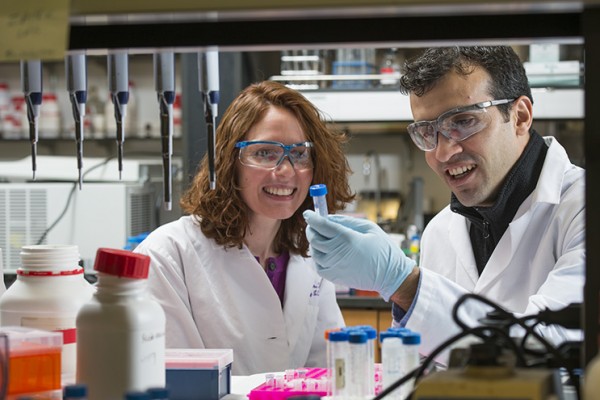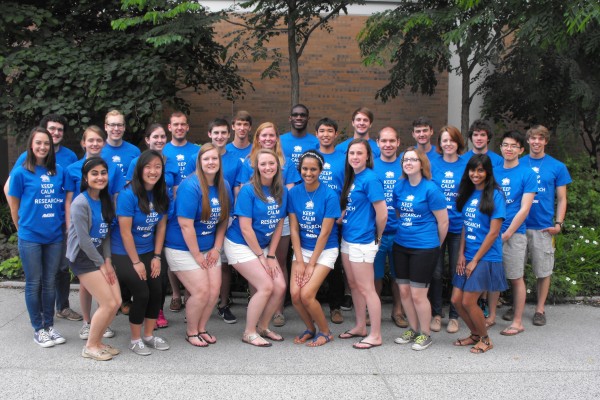Wall recognized for work at Ethiopian university
L. Lewis Wall, MD, DPhil (right), has received a gold medal for his “meritorius contributions” to medical education at Mekelle University College of Medical and Health Sciences in Mekelle, Ethiopia. He is a professor of obstetrics and gynecology at the Washington University School of Medicine and of anthropology in Arts & Sciences.
Music faculty member participates in Mizzou Improvisation Festival
Paul Steinbeck, PhD, assistant professor of music theory and composition in Arts & Sciences at Washington University in St. Louis, recently attended the Mizzou Improvisation Festival at the University of Missouri-Columbia and — and even had one of his works performed.
Stefaniak presents at American Musicological Society meeting
Alexander Stefaniak, PhD, assistant professor of musicology in Arts & Sciences at Washington University in St. Louis, was invited to present his paper, “Brilliant, Transcendent Virtuosity in Clara Wieck Schumann’s 1830s Concerts” at the American Musicological Society Annual Meeting (held jointly with the Society for Music Theory), in Milwaukee in early November.
It’s not always the DNA
Scientists have mostly ignored mRNA, the molecule that ferries information from DNA to the cellular machines that make proteins, because these DNA transcripts are ephemeral and soon destroyed. But mRNA can be just as
important as DNA scientists at Washington University in St. Louis say. They found that oxidized messenger RNA jams the cellular machines that
make protein. The failure to clear the jams and chew up bad messengers
is associated with neurodegenerative diseases such as Alzheimer’s.
Reycraft joins Wind Ensemble Nov. 20
St. Louis Symphony trombonist Jonathan Reycraft will join the Washington University Wind Ensemble Nov. 20 for a free concert in the E. Desmond Lee Concert Hall. Presented as part of the symphony’s Community Partnership program, the performance will feature music of Bert Appermont, Steven Bryant, Robert Jager and Darius Milhaud.
Jeff Boyer in ‘Bubble Trouble’ Nov. 22
A bubble volcano? A bubble roller coaster? A bubble cannon and bubble trumpet? In “Bubble Trouble,” Jeff Boyer takes bubble art and bubble science to illogical extremes — sculpting, juggling and building with the most ephemeral, effervescent material imaginable.
Planetary scientists receive funds for Mars mineral research
Planetary scientists at Washington University in St. Louis have received a $279,639, three-year grant from the NASA Mars Fundamental Research Program for a project that seeks to determine how clay minerals formed on Mars and ways they have been altered since then.
Washington University receives new grant to host Amgen Scholars Program
Washington University in St. Louis has been awarded a grant from the Amgen Foundation that will provide hands-on laboratory experience to undergraduate students through the Amgen Scholars Program. This marks the fifth year that Washington University is participating in the program.
‘This Too Shall Pass’ Nov. 23
Guest conductor André de Quadros will join the Washington University Choirs for “This Too Shall Pass,” a free concert at 3 p.m. Sunday, Nov. 23, at the 560 Music Center. The concert will feature both composed and improvised works, with a special emphasis on the musical practices of Muslim communities.
A tribute to Harold Blumenfeld, 91, professor emeritus of music
Harold Blumenfeld, professor emeritus of music in Arts & Sciences at Washington University in St. Louis — and the first composer to devote extensive attention to the poetry of Arthur Rimbaud — died Saturday, Nov. 1, 2014, from complications of Alzheimer’s disease. He was 91.
View More Stories


